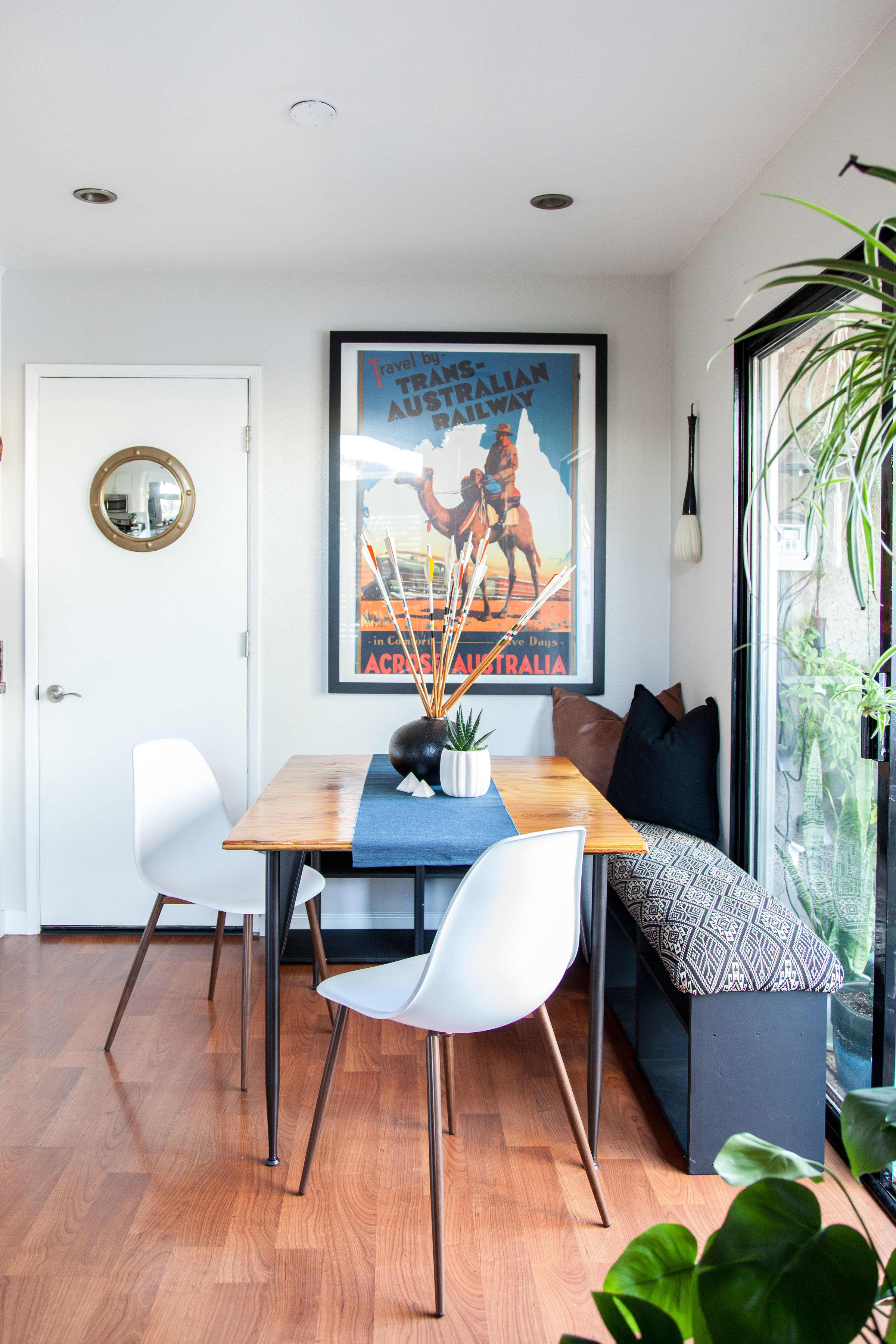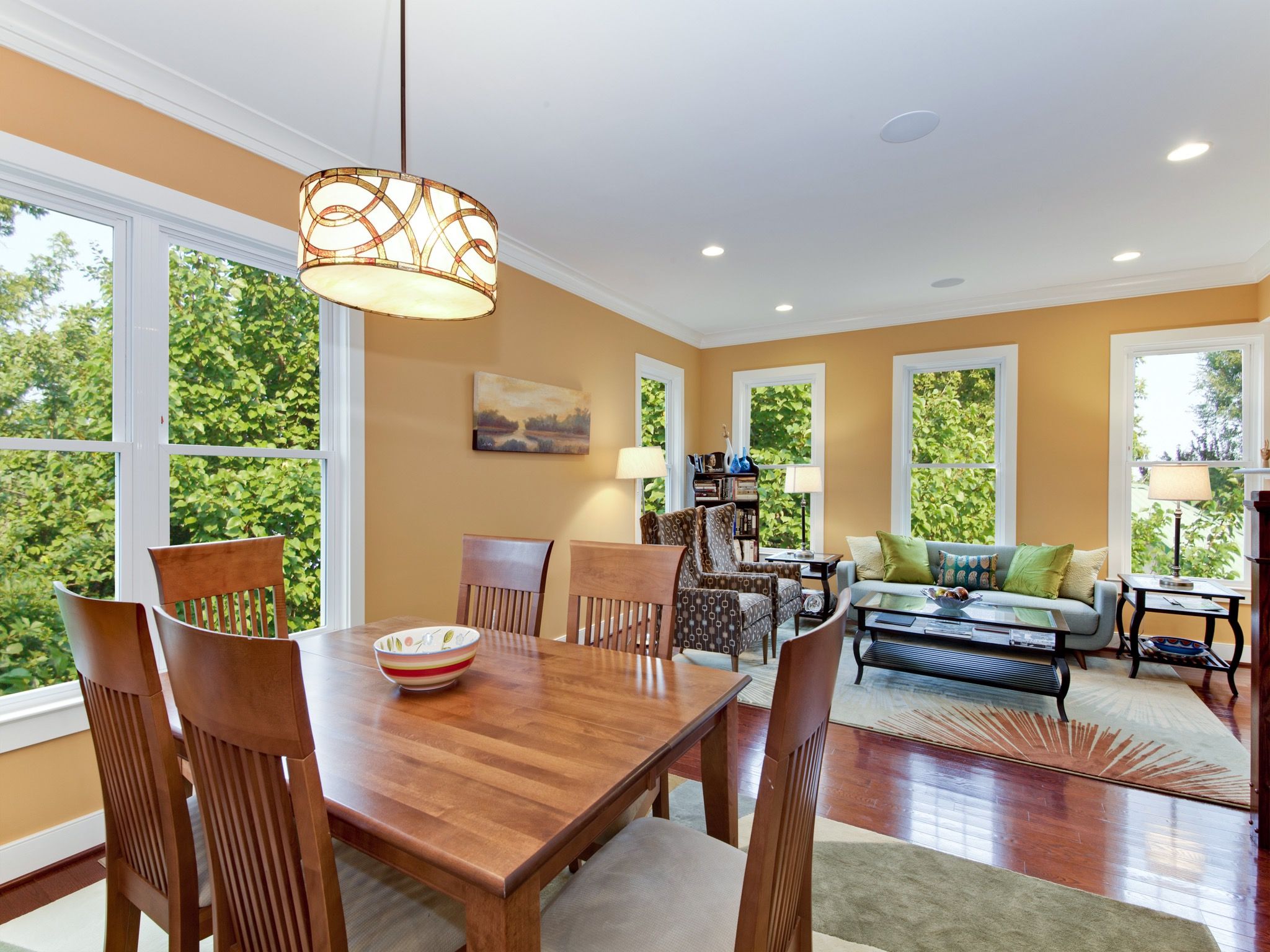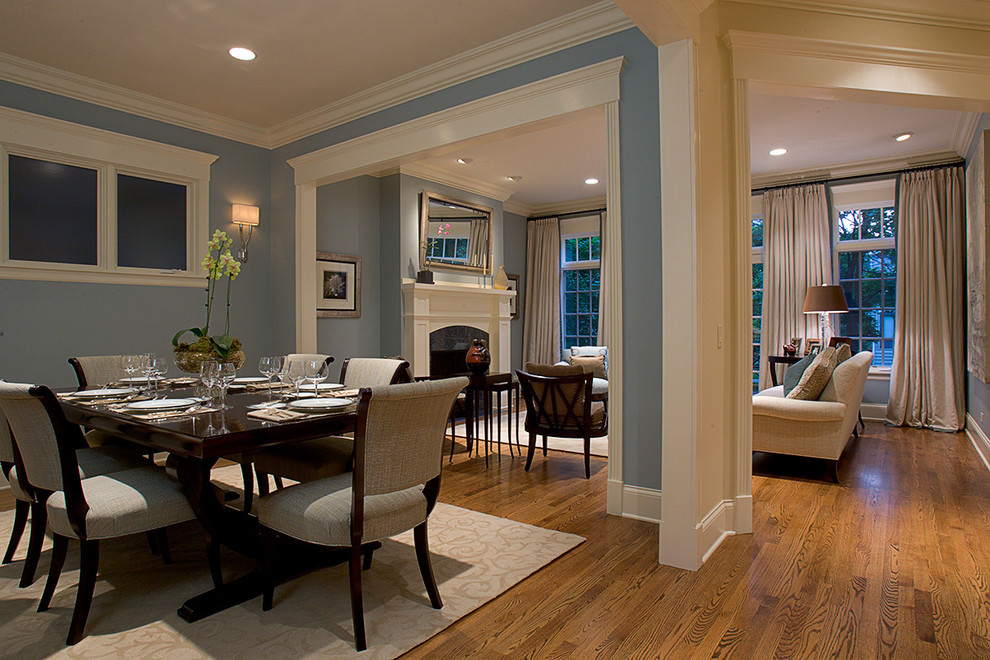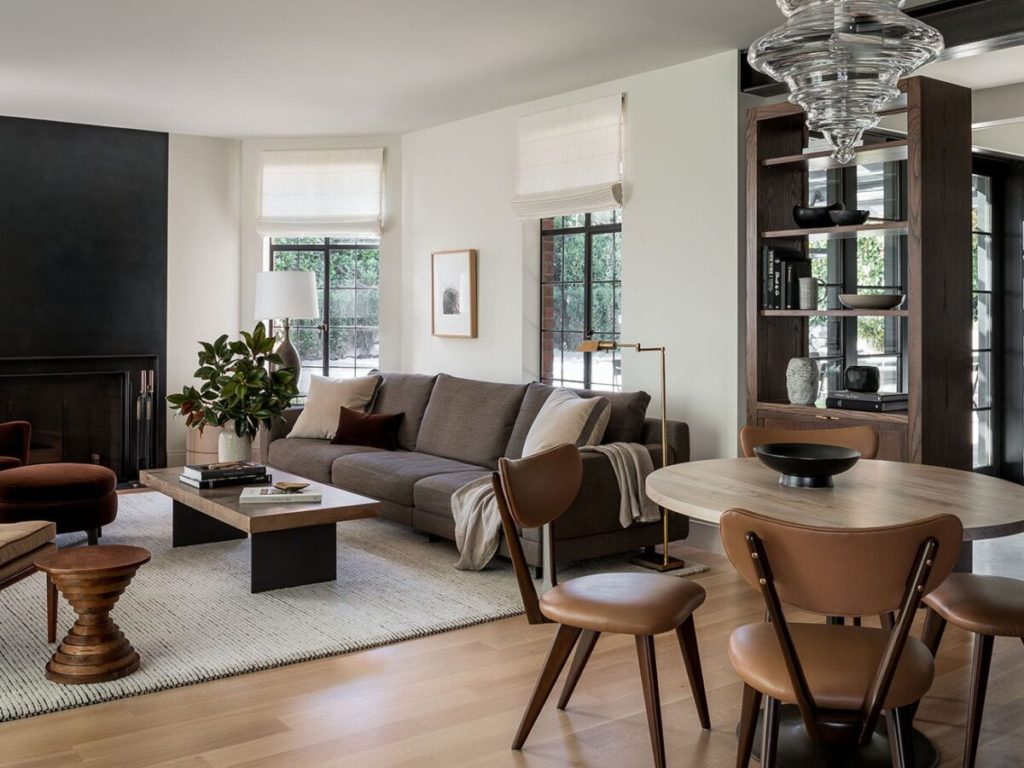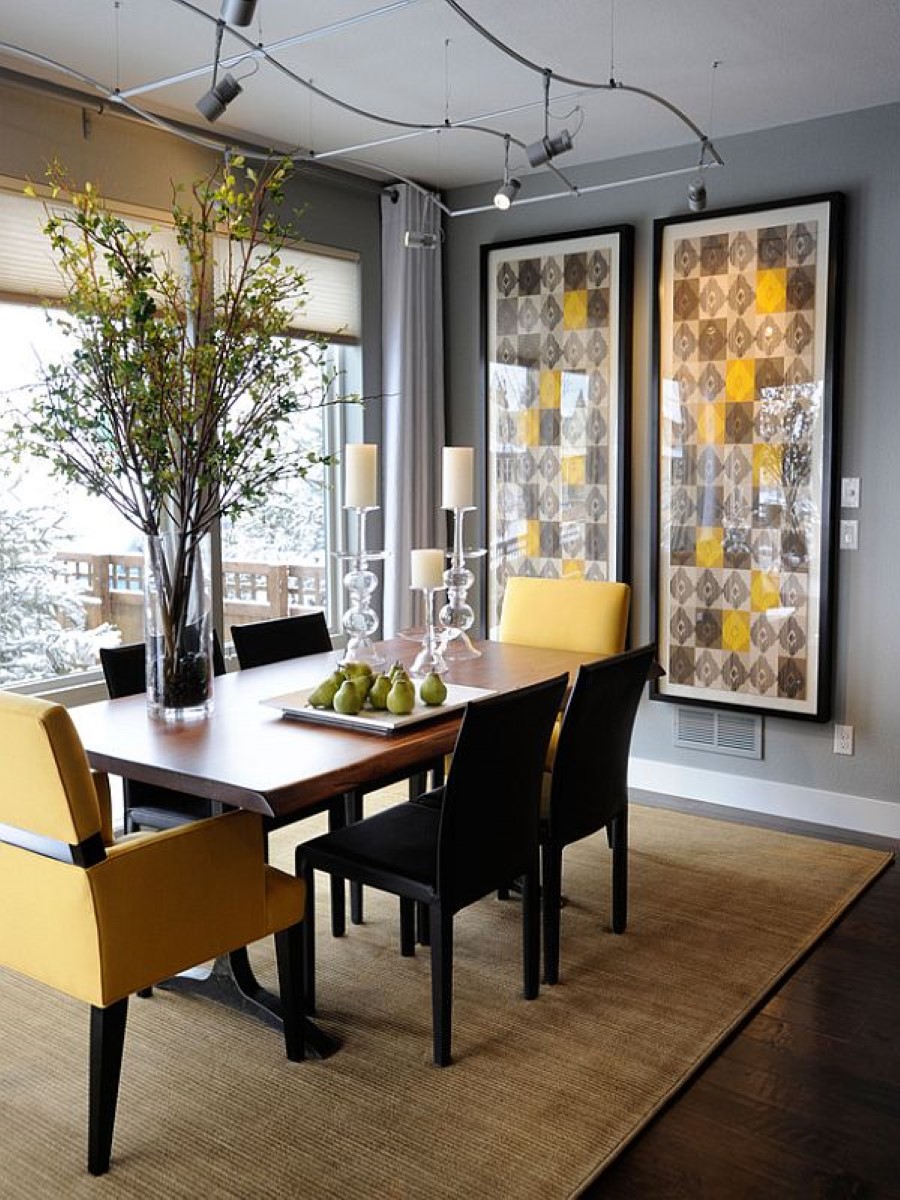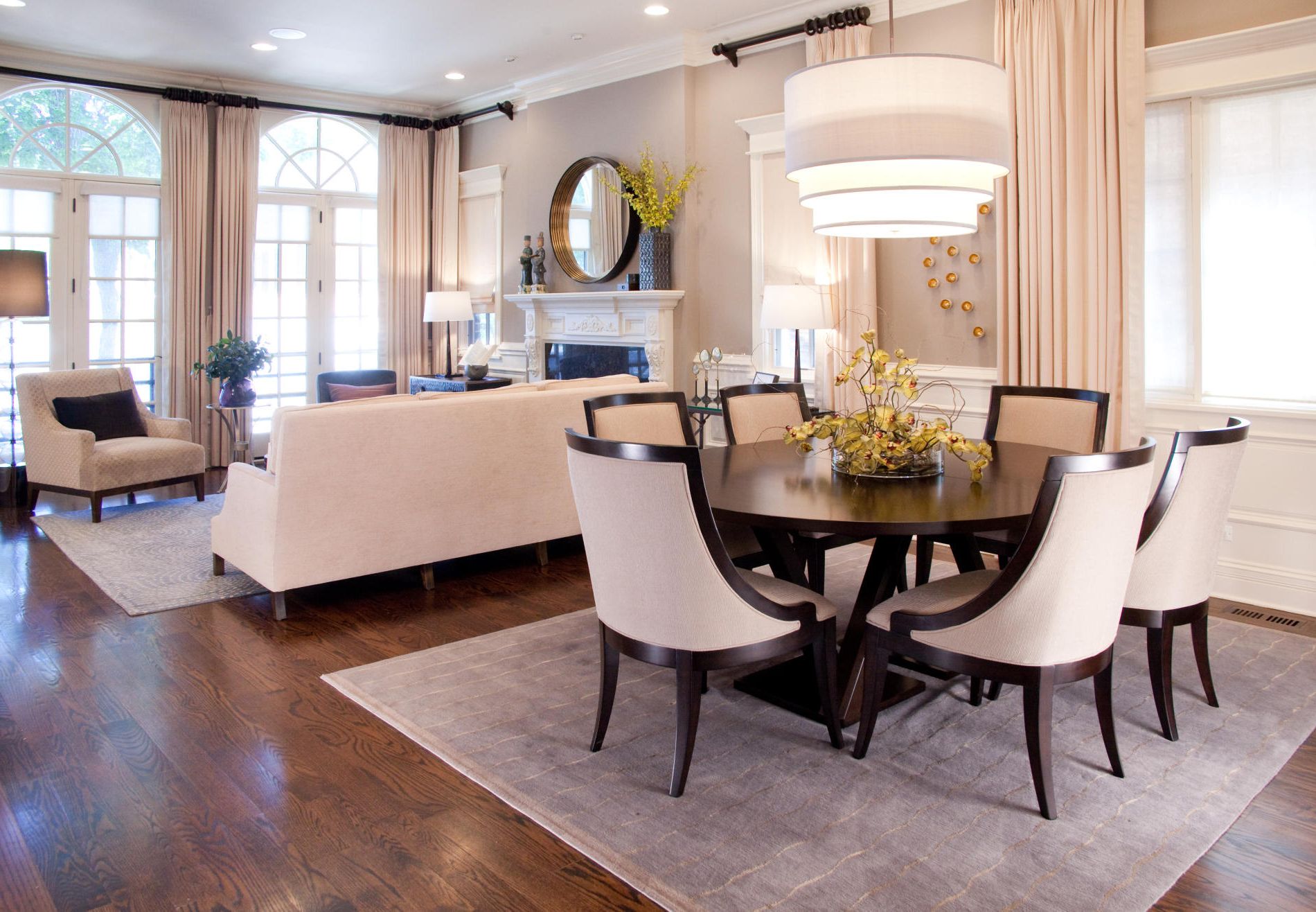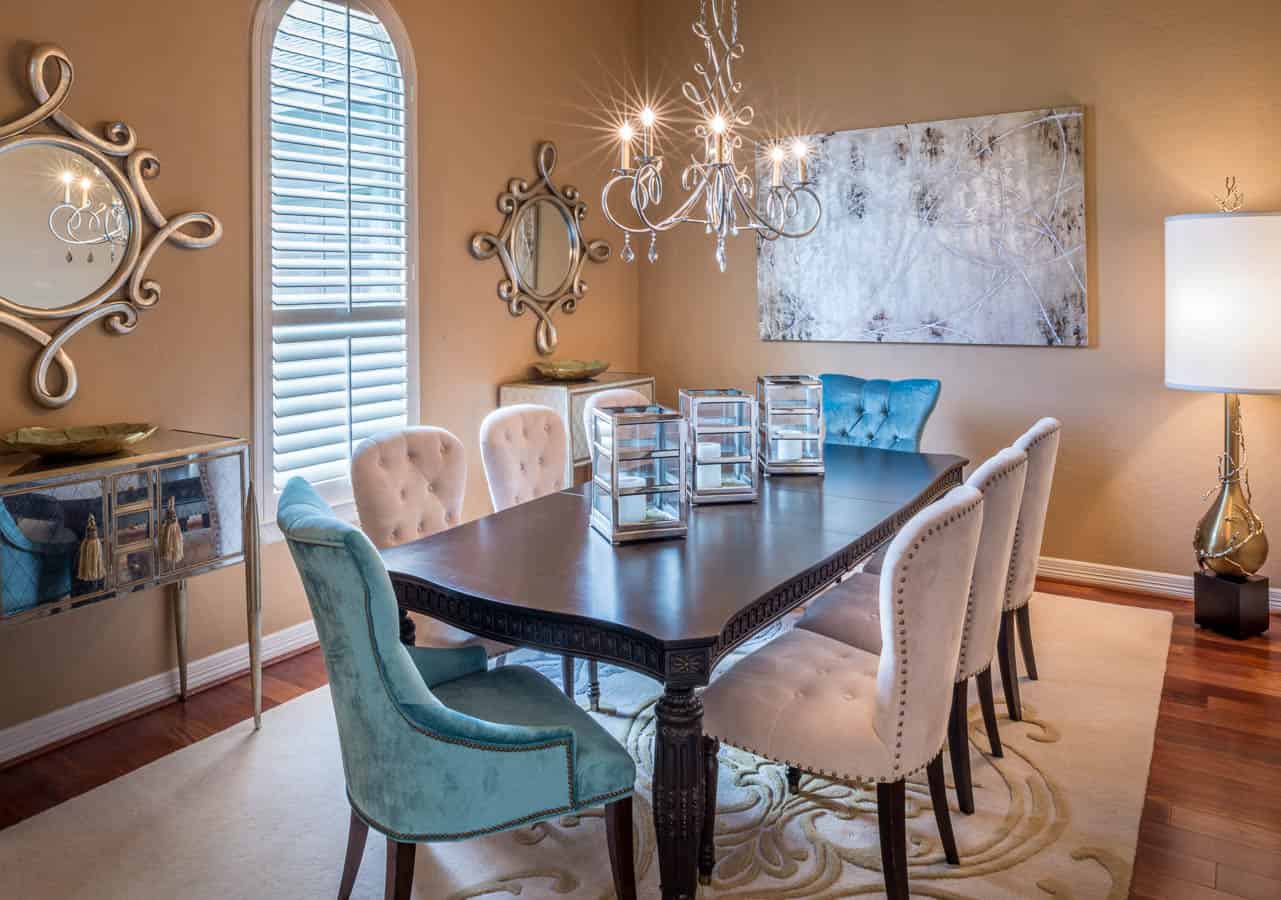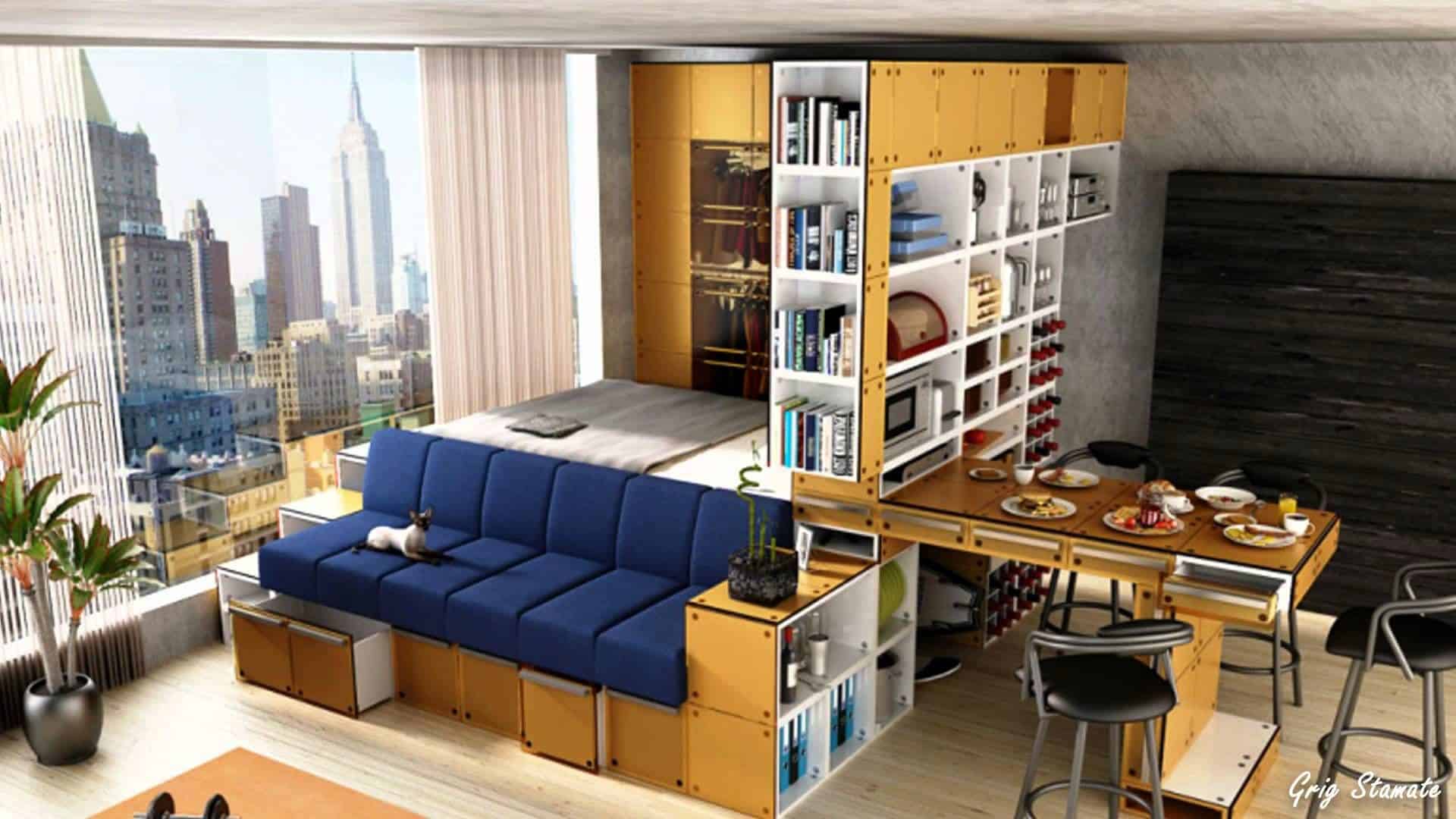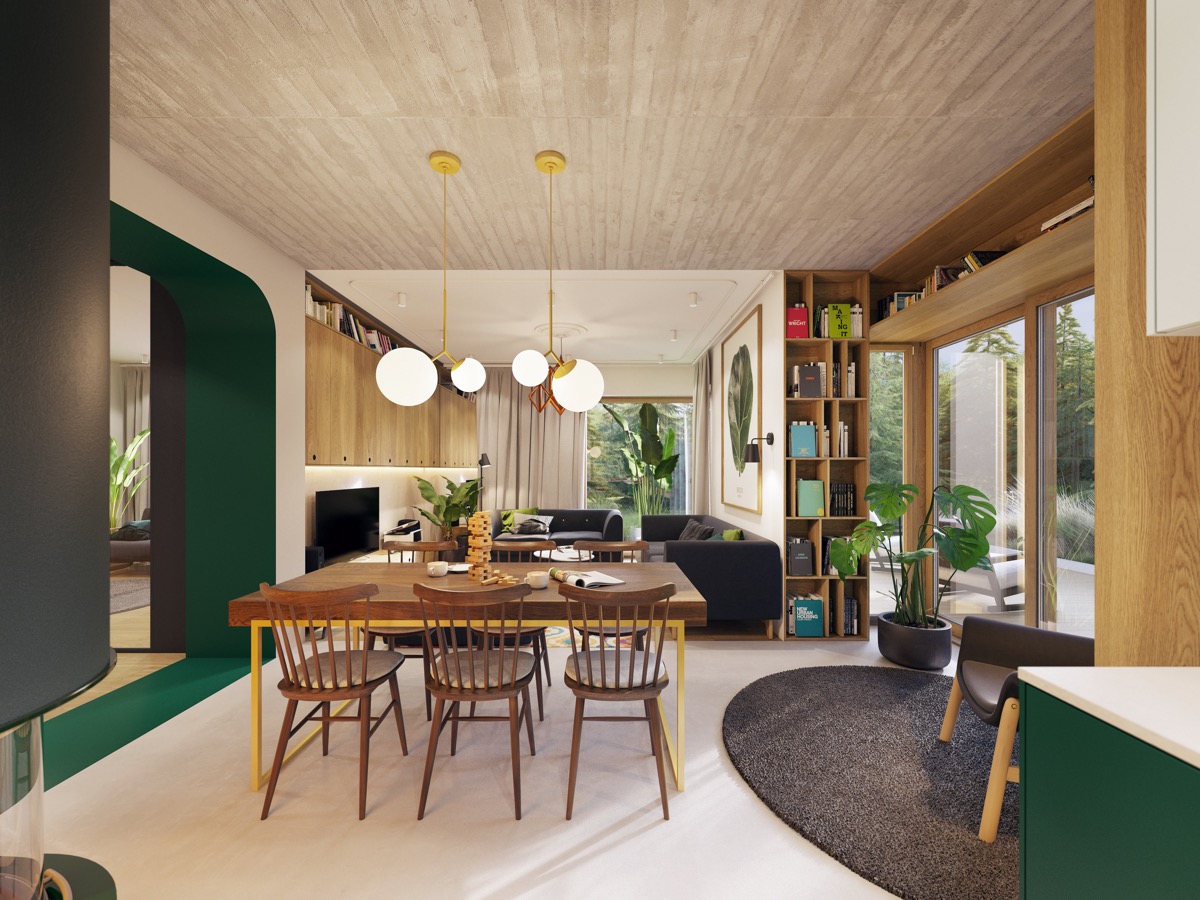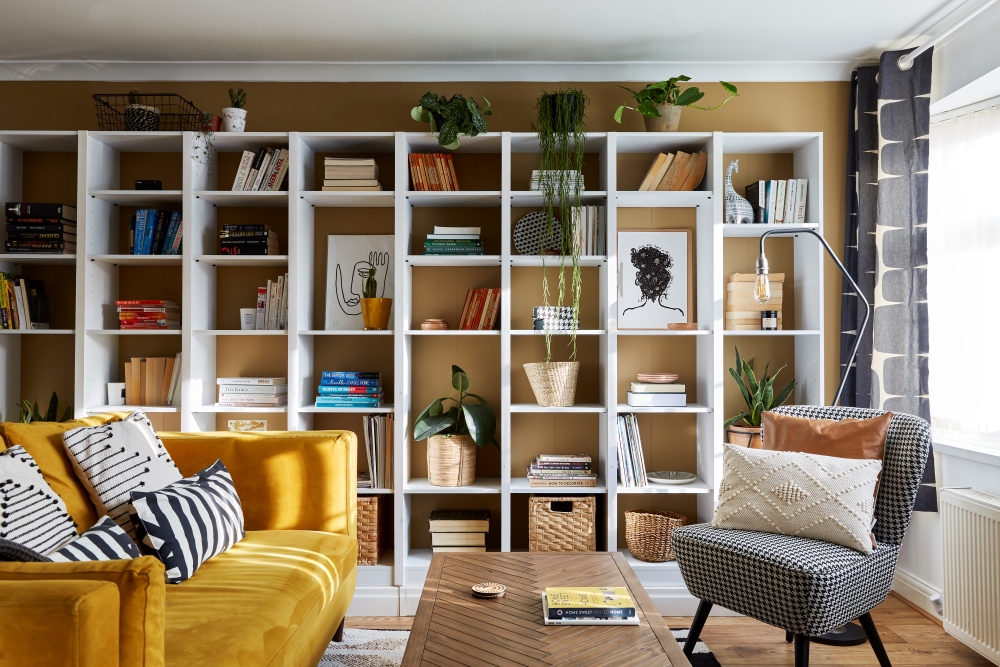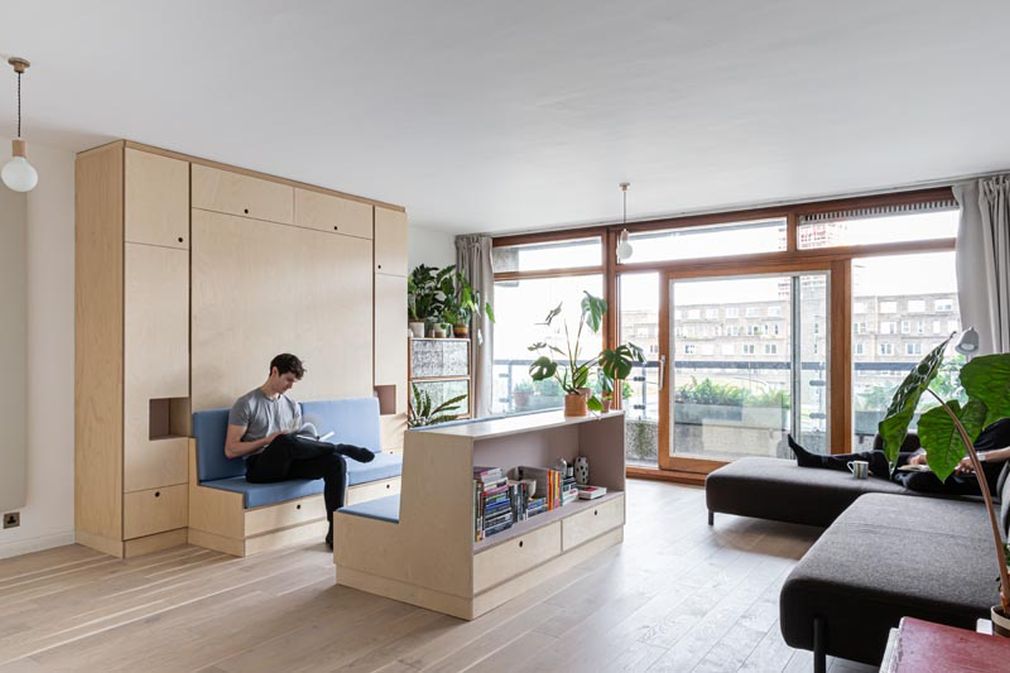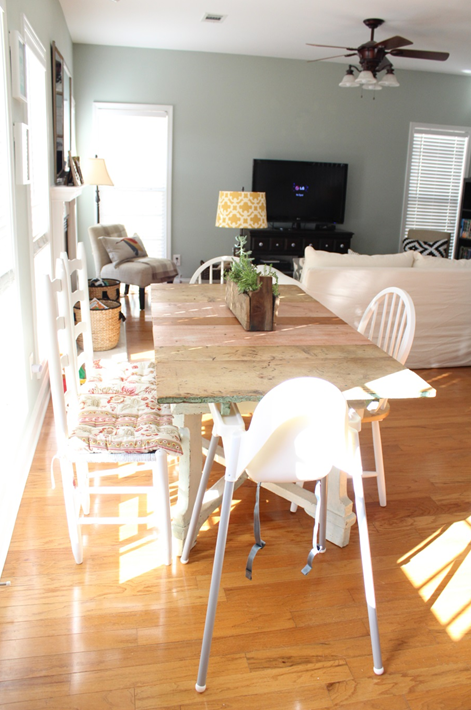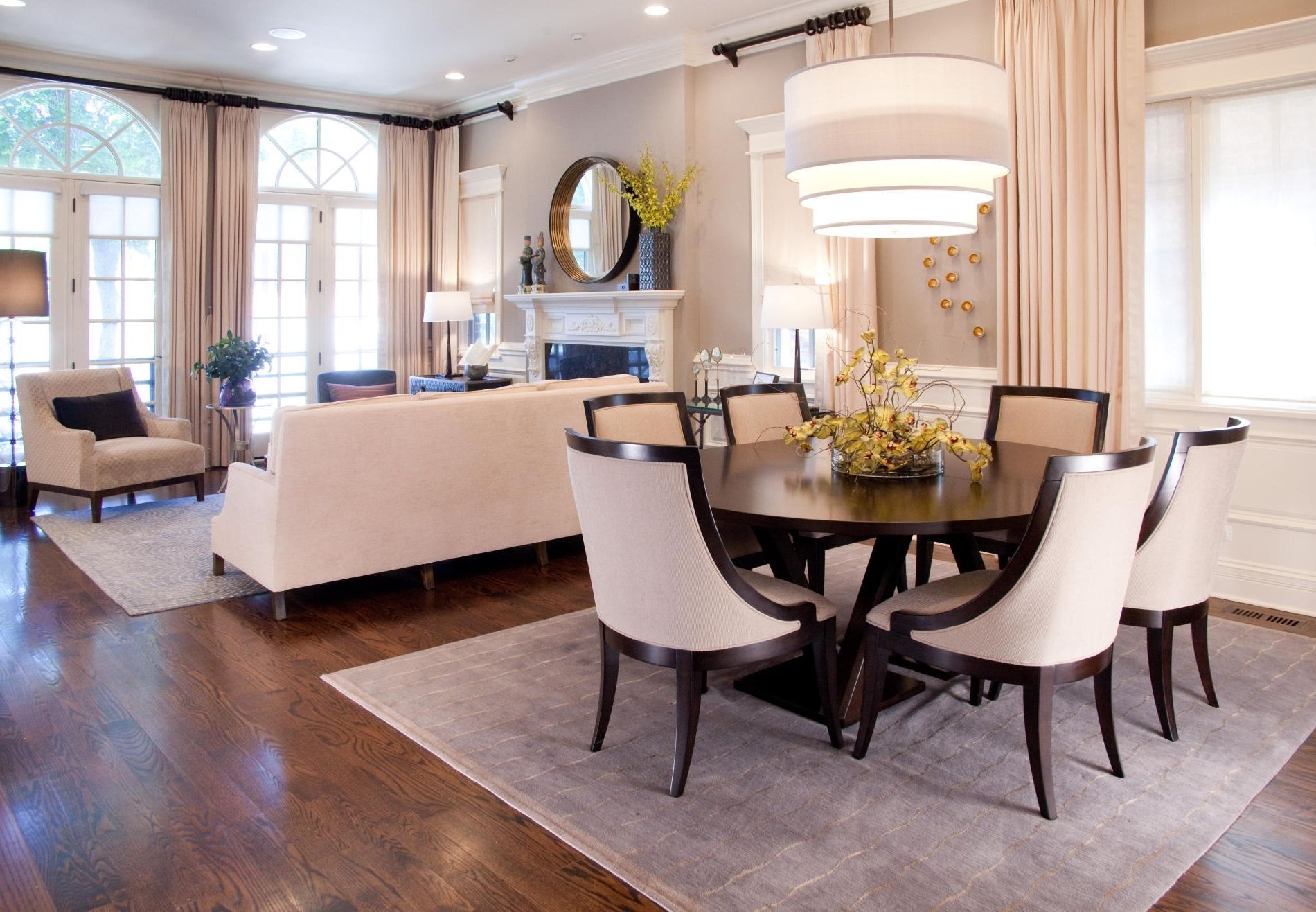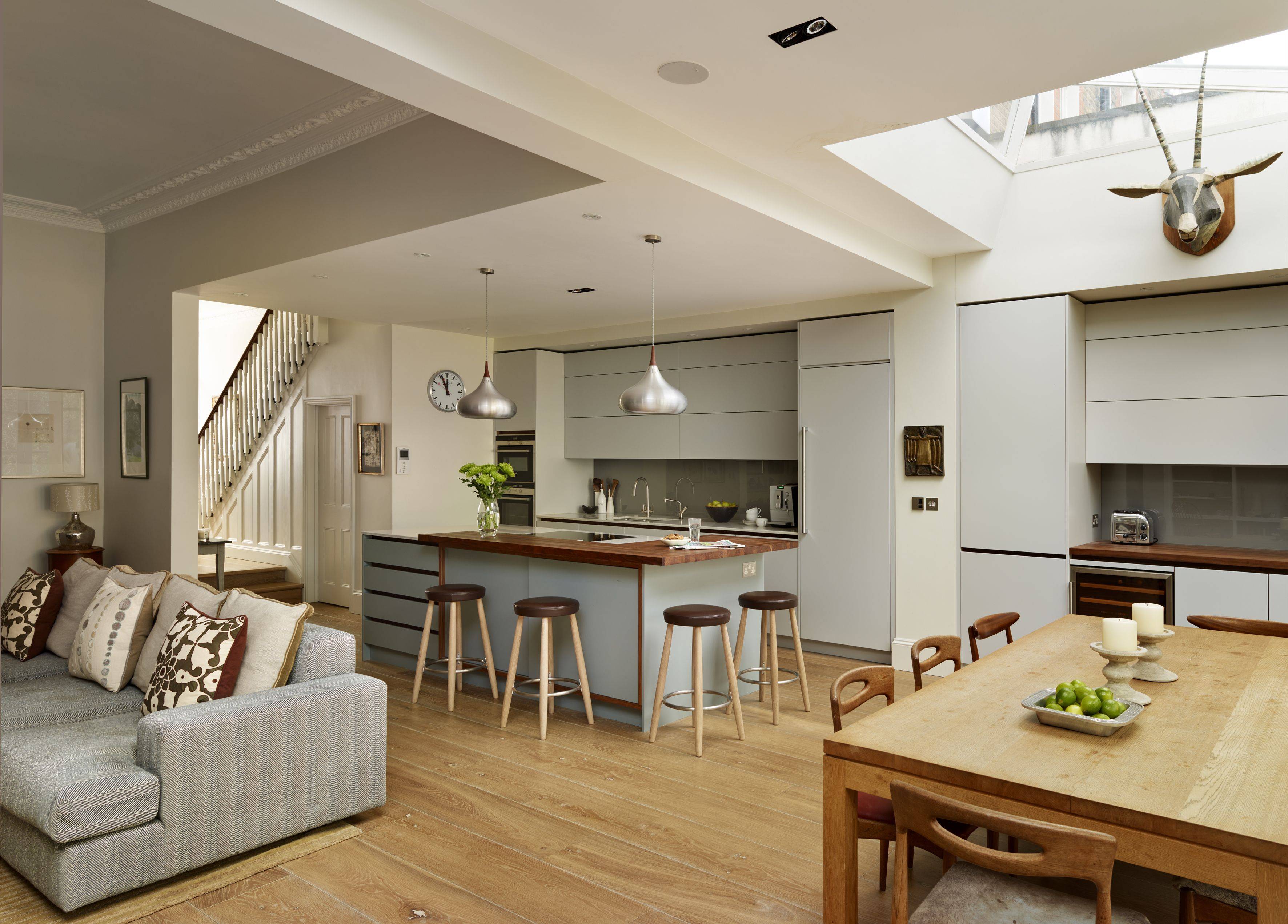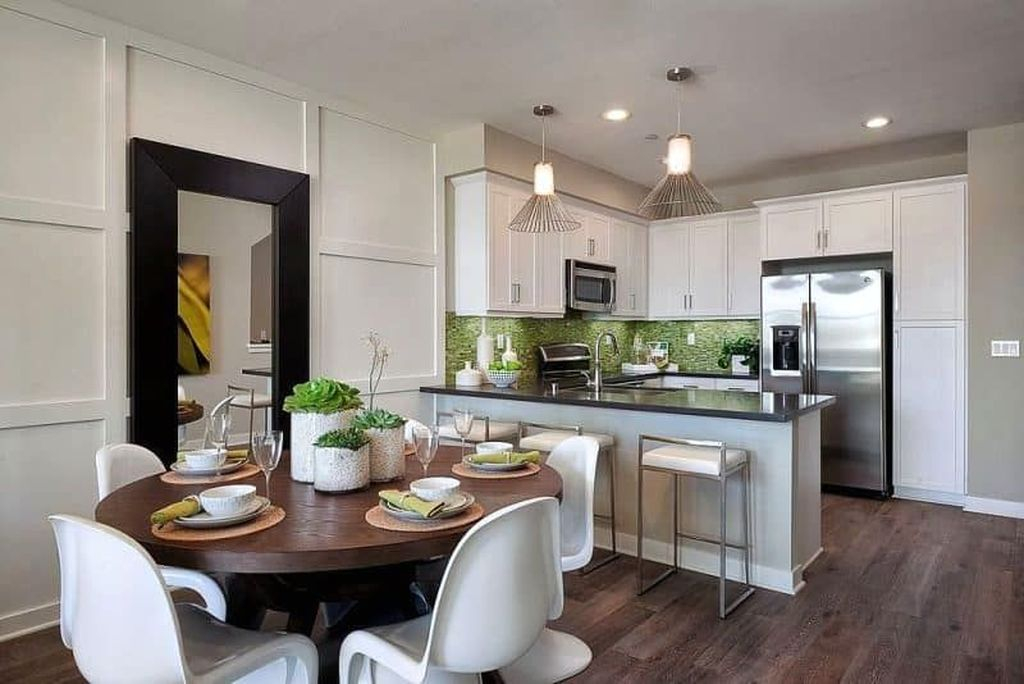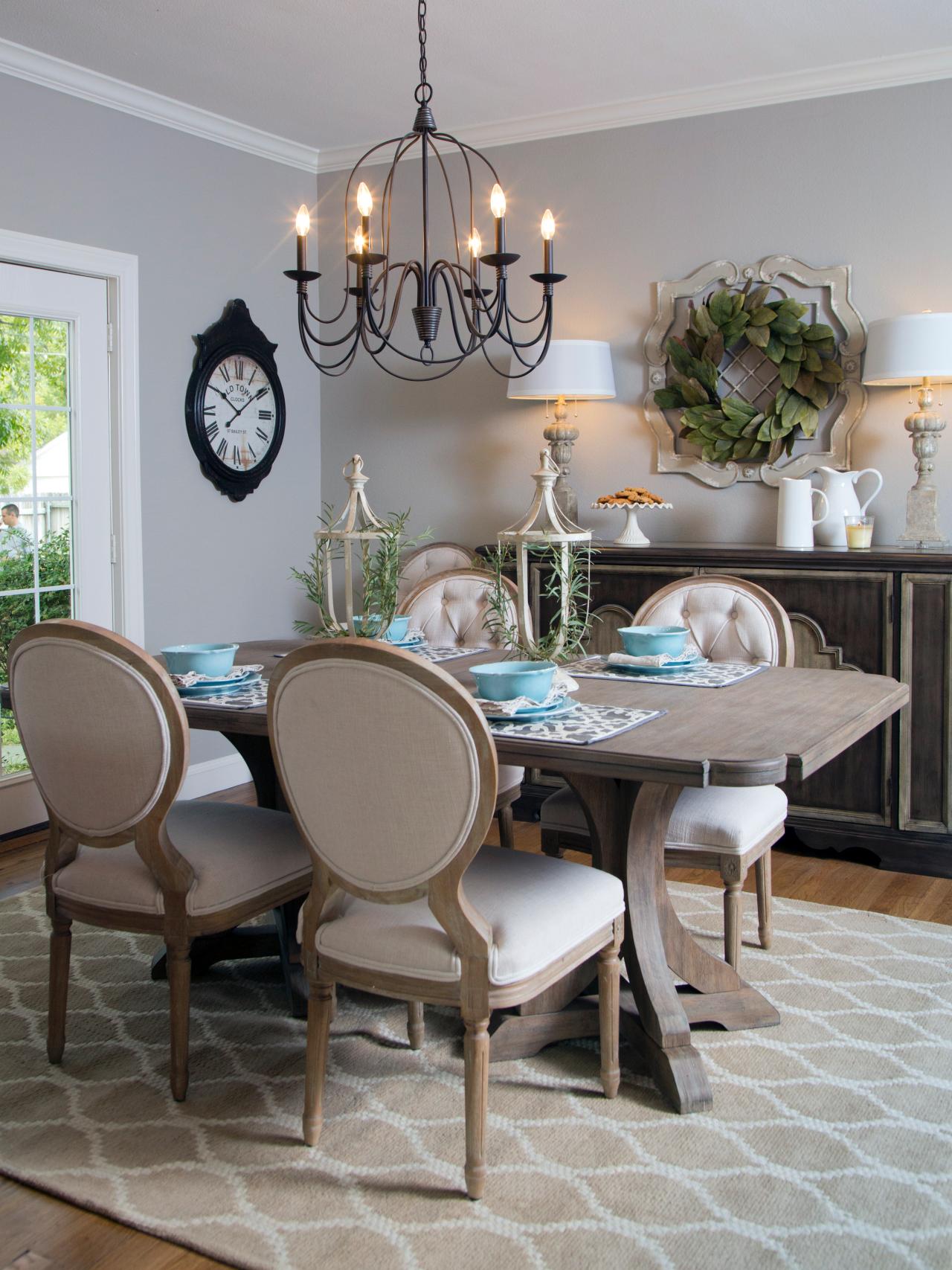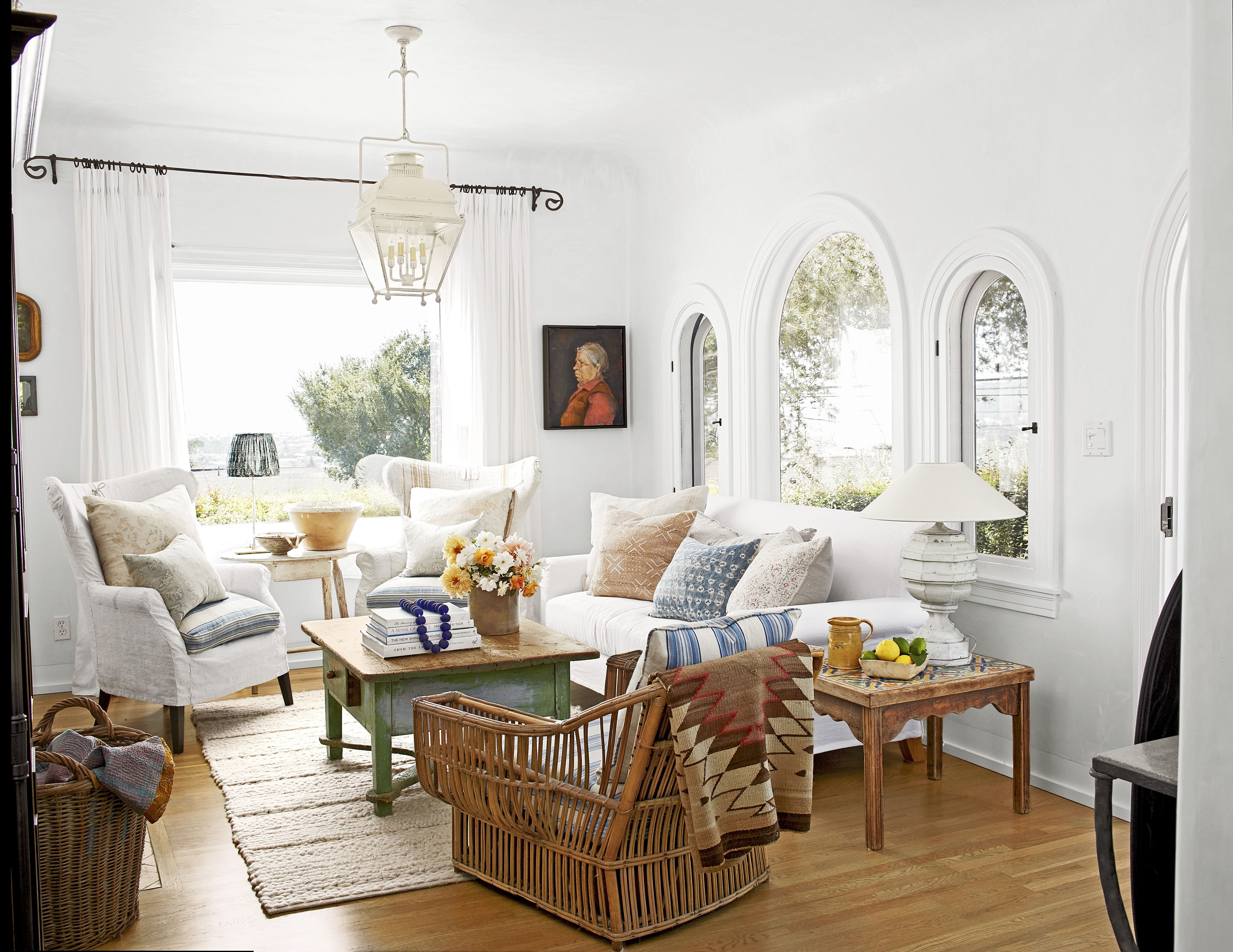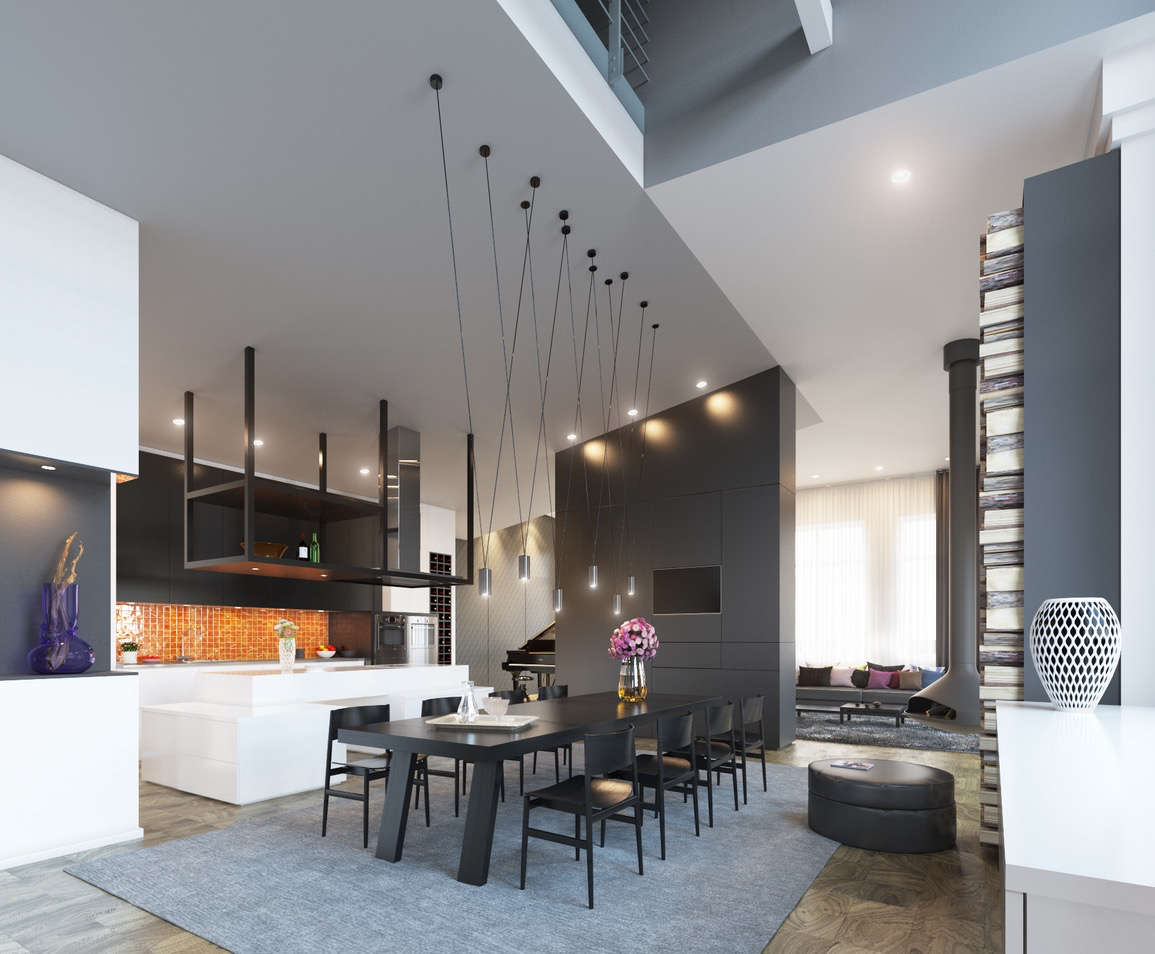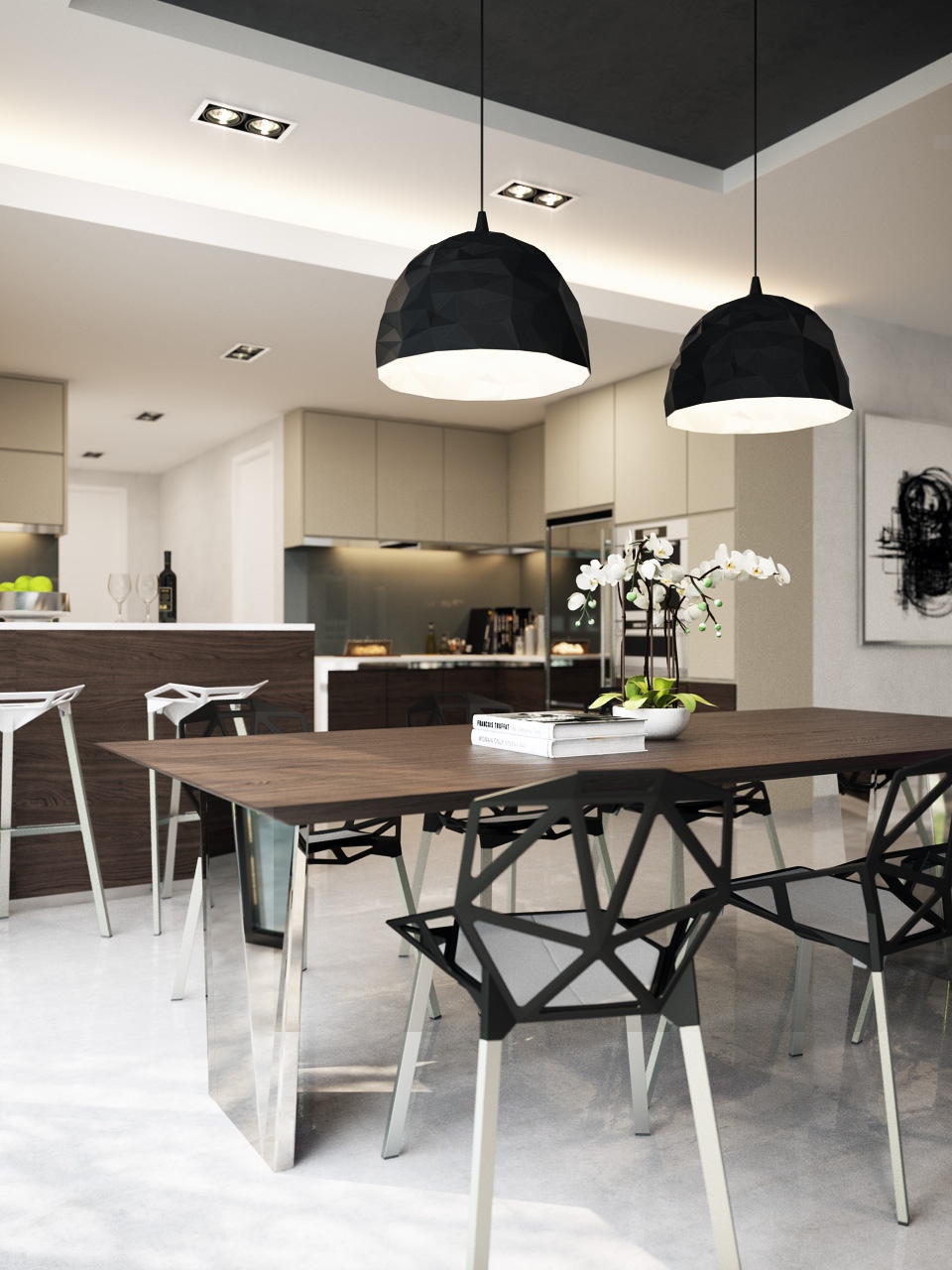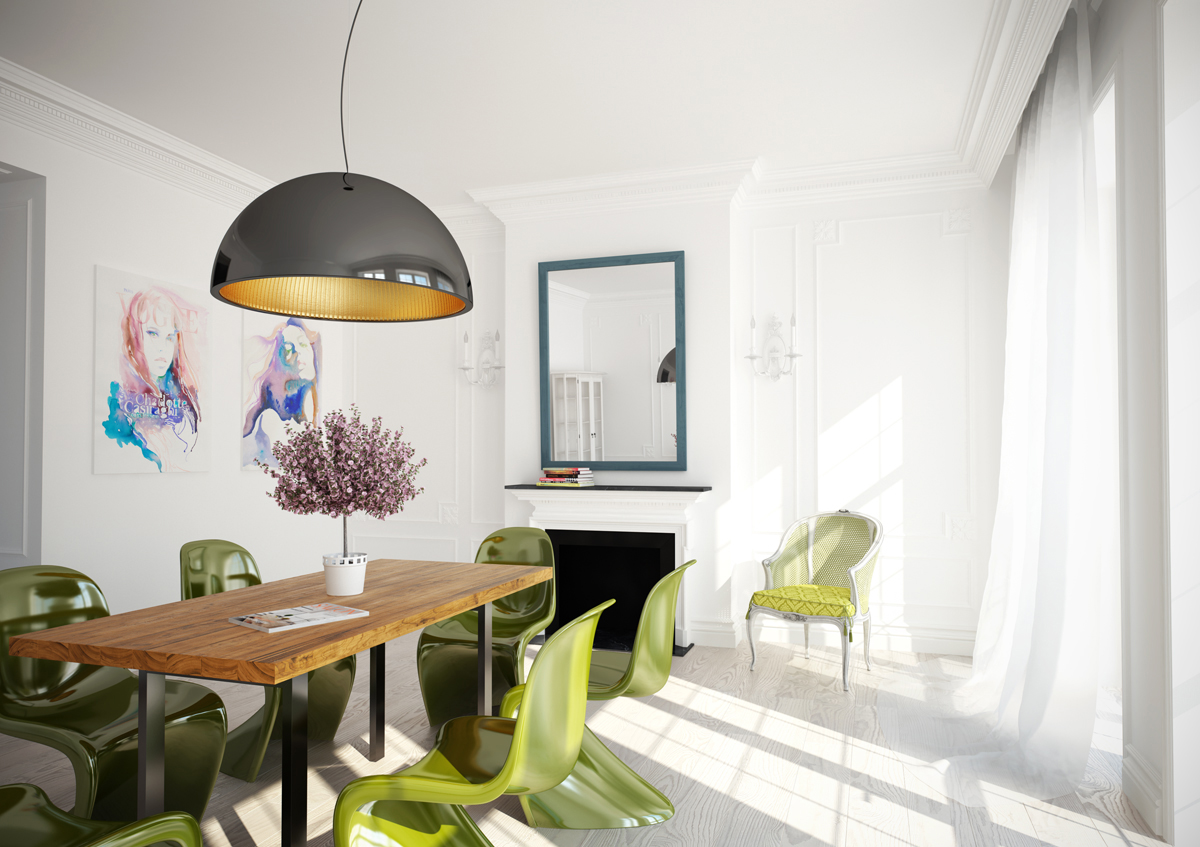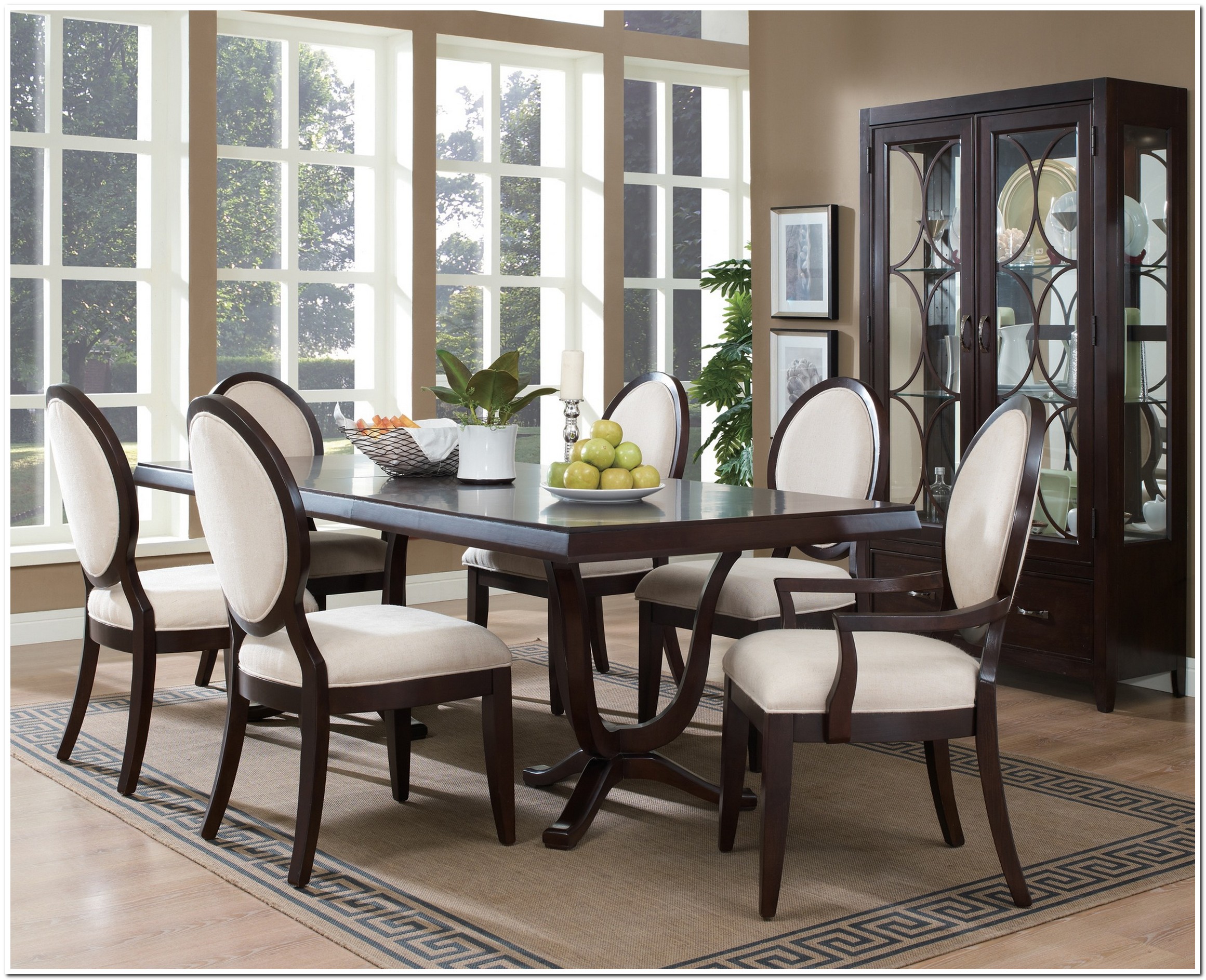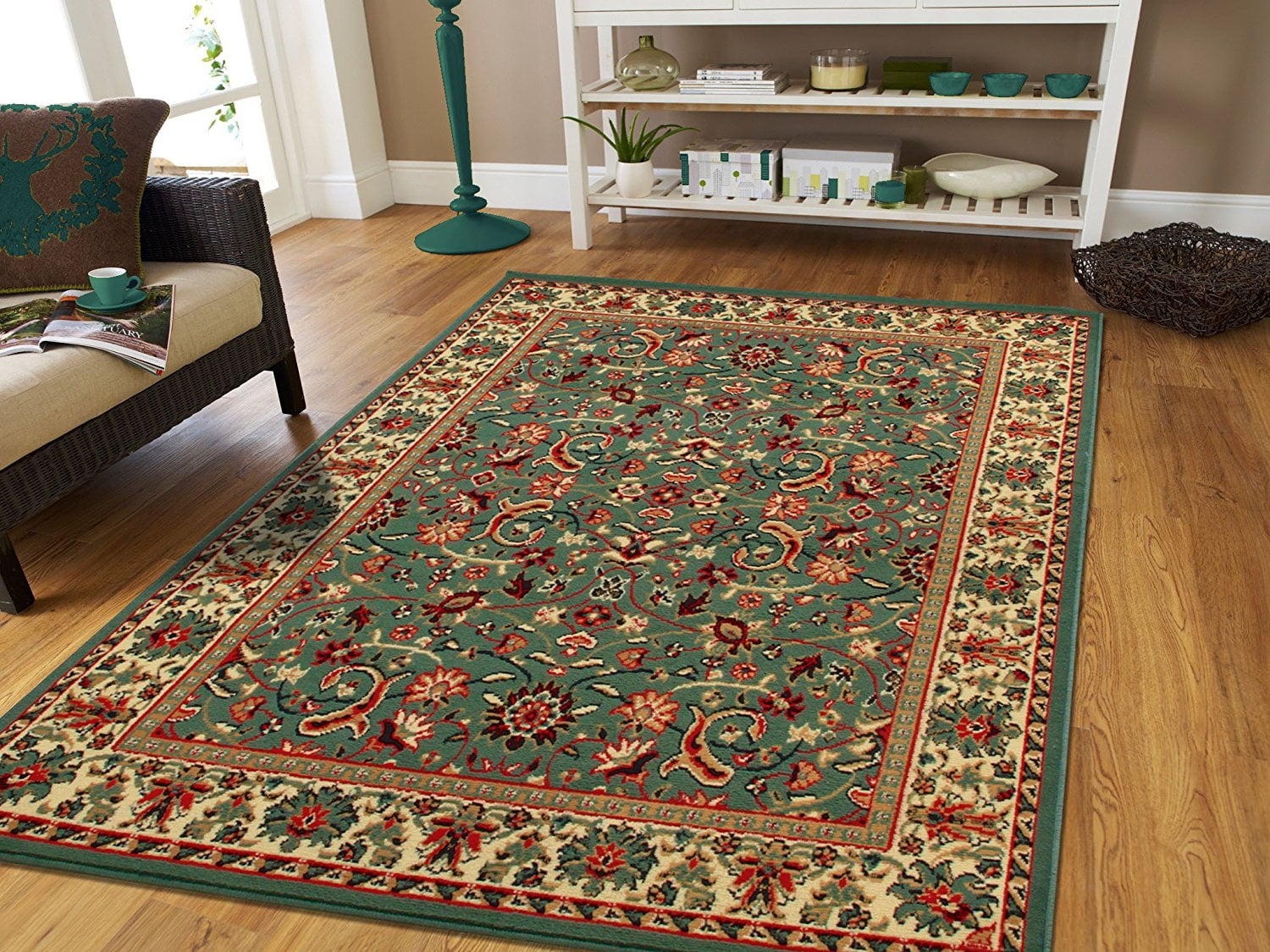Open concept living and dining rooms have become increasingly popular in recent years. This design trend allows for a more spacious and connected feel in the main living areas of the home. With the removal of walls and barriers, these two rooms can flow seamlessly together, creating a versatile and inviting space. One idea for an open concept living and dining room is to use a neutral color palette throughout. This creates a cohesive look and allows for the furniture and decor to stand out. Neutral colors such as white, beige, and gray can also make the space feel larger and more airy. Another key feature in open concept living and dining rooms is the use of natural light. Large windows and skylights can bring in an abundance of natural light, making the space feel bright and welcoming. Maximizing natural light can also help save on energy costs. Furniture placement is crucial in open concept living and dining rooms. The placement of furniture can help define separate areas while still maintaining the open feel of the space. For example, a sofa or rug can act as a divider between the living and dining areas. Multi-functional furniture is also a great idea for open concept living and dining rooms. This type of furniture serves more than one purpose, making the most out of limited space. Some examples of multi-functional furniture include a coffee table with storage or a dining table that can also be used as a workspace.Open Concept Living and Dining Room Ideas
For those living in smaller homes or apartments, shared living and dining rooms can present a design challenge. However, with some creativity and smart design choices, even the smallest of spaces can feel functional and stylish. Maximizing vertical space is crucial in small shared living and dining rooms. This means utilizing walls for shelving or hanging storage options. This not only adds storage space but can also serve as a decorative element in the room. Another important aspect to consider in small shared living and dining rooms is the use of light and airy colors. Lighter colors can make a space feel larger and more open. Consider using light-colored furniture and decor to achieve this effect. Small-scale furniture is a must in small shared living and dining rooms. Oversized furniture can make the space feel cramped and cluttered. Opt for furniture that is appropriately sized for the room and consider pieces that can serve more than one purpose. In a small shared living and dining room, it is also important to minimize clutter. This not only creates a more visually appealing space but also allows for better flow and functionality. Consider implementing storage solutions such as baskets or bins to keep items organized and out of sight.Small Shared Living and Dining Room Ideas
Combining the living and dining room is a popular design choice for many homeowners. This can create a cohesive and versatile space for entertaining and everyday living. Designing a combined living and dining room requires careful consideration of furniture placement and cohesive design elements. Creating separate zones is important in a combined living and dining room. This can be achieved through the use of furniture placement, area rugs, or even different lighting options. The goal is to create distinct areas for dining and lounging without disrupting the flow of the space. The use of accent colors can also help tie the living and dining areas together in a combined space. Consider using a bold color in both areas to create a cohesive look. This can be achieved through accent walls, furniture, or decor. Utilizing textures is another way to add dimension and interest to a combined living and dining room. Mix and match different textures such as wood, metal, and fabrics to create a visually appealing and cozy space. Lastly, incorporating personal touches is essential in a combined living and dining room. This can be achieved through the use of family photos, artwork, or sentimental decor pieces. These personal touches can make the space feel more inviting and unique.Combined Living and Dining Room Design Ideas
When it comes to decorating a shared living and dining room, it's important to create a cohesive and balanced look. This can be achieved through the use of color, texture, and patterns. Color coordination is key in shared living and dining rooms. This doesn't necessarily mean using the same color throughout the space, but rather finding colors that complement each other. Consider using a color wheel to find complementary or analogous colors for a cohesive look. Layering textures is another way to add depth and interest to a shared living and dining room. Mixing different textures such as velvet, leather, and woven materials can create a visually appealing and cozy space. Using patterns in a shared living and dining room can also add visual interest. However, it's important to use patterns in moderation to avoid overwhelming the space. Consider using patterns in accent pieces such as throw pillows or rugs. Incorporating greenery is also a great way to add life and vibrancy to a shared living and dining room. Plants not only add visual interest but also have the added benefit of improving air quality.Shared Living and Dining Room Decorating Ideas
With the rise of smaller living spaces, multi-functional rooms have become increasingly popular. A living and dining room that serves multiple purposes can not only save space but also add convenience and versatility to a home. One idea for a multi-functional living and dining room is to use a murphy bed. This type of bed can be folded up and hidden in a wall unit, creating extra space for dining and entertaining. This is especially useful for those who frequently host guests. Convertible furniture is another great idea for a multi-functional living and dining room. This can include items such as a sofa bed or a coffee table that can transform into a dining table. These pieces allow for the room to easily transition between a living and dining space. Incorporating a workspace into a multi-functional living and dining room is also a smart idea. This can be achieved through the use of a desk or even a floating shelf with a chair. This allows for the room to serve as a home office when needed. Lastly, adding storage solutions is essential in a multi-functional living and dining room. This can include floating shelves, wall units, or even hidden storage options. These solutions not only add functionality but also help keep the space organized and clutter-free.Multi-functional Living and Dining Room Ideas
The layout of a shared living and dining room is crucial in creating a functional and visually appealing space. This can be achieved through the use of furniture placement, traffic flow, and focal points. Furniture placement is key in a shared living and dining room. It's important to create a balance between the two areas and allow for easy flow and movement. Consider using rugs to define each space and anchor furniture. The traffic flow of the room is also essential in a shared living and dining room. It's important to leave enough space for people to move around comfortably without disrupting the flow of the space. This can be achieved by leaving enough room between furniture and avoiding cluttered areas. Creating focal points in both the living and dining areas can also help define the space and add visual interest. This can include a fireplace, gallery wall, or statement furniture piece. These focal points can also help tie the two areas together. When laying out a shared living and dining room, it's important to consider the functionality of the space. The layout should not only be visually appealing but also practical for everyday living and entertaining.Shared Living and Dining Room Layout Ideas
A cozy shared living and dining room is the perfect space to relax and unwind with family and friends. This can be achieved through the use of warm colors, comfortable furniture, and soft lighting. Warm colors such as earthy tones and shades of red, orange, and yellow can create a cozy and inviting atmosphere in a shared living and dining room. These colors can be incorporated through paint, furniture, and decor. In terms of furniture, opt for plush and comfortable pieces in a cozy shared living and dining room. This can include a large sectional sofa, oversized armchairs, and soft throw blankets. These elements not only add comfort but also make the space feel warm and inviting. Lighting is also a crucial element in a cozy shared living and dining room. Soft and warm lighting can create a warm and inviting ambiance. Consider using dimmer switches to control the lighting and add some candles for a cozy touch. Lastly, accessorizing with soft textures such as faux fur, knit throws, and plush pillows can add to the cozy atmosphere of a shared living and dining room. These elements not only add visual interest but also make the space feel more inviting and comfortable.Cozy Shared Living and Dining Room Ideas
For those who prefer a more contemporary and sleek design, a modern shared living and dining room may be the perfect fit. This can be achieved through the use of clean lines, minimalism, and bold accents. Simplicity is key in a modern shared living and dining room. This means using clean lines and minimal decor. Avoid clutter and opt for a more streamlined and minimalistic approach. When it comes to furniture, opt for modern and sleek pieces with clean lines. This can include furniture with metal or glass accents and smooth surfaces. These pieces not only add to the modern aesthetic but also make the space feel more open and spacious. Adding bold accents is a great way to add interest and personality to a modern shared living and dining room. This can be achieved through the use of bold colors, patterns, or statement pieces. Just be sure not to overdo it and maintain a clean and minimalistic look. Lastly, incorporating technology is a must in a modern shared living and dining room. This can include items such as a smart TV, wireless speakers, and other tech-savvy gadgets. These elements not only add convenience but also enhance the modern feel of the space.Modern Shared Living and Dining Room Ideas
The color scheme of a shared living and dining room can greatly impact the overall look and feel of the space. When choosing a color scheme, it's important to consider the functionality and mood of the room. For a more relaxed and calming atmosphere, consider using cool colors such as blue, green, and purple. These colors can create a sense of tranquility and make the space feel more inviting. Bold and vibrant colors can add energy and personality to a shared living and dining room. This can include colors such as red, orange, and yellow. These colors can make the space feel more lively and inviting for entertaining. For a sophisticated and elegant look, consider using a neutral color palette. This can include shades of white, beige, and gray. These colors create a timeless and chic look that can be easily incorporated into different design styles. Lastly, monochromatic color schemes can add a modern and cohesive look to a shared living and dining room. This involves using different shades of the same color throughout the space. This creates a visually appealing and harmonious look without being too overwhelming.Shared Living and Dining Room Color Scheme Ideas
Choosing the right furniture for a shared living and dining room is crucial in creating a functional and visually appealing space. When selecting furniture, it's important to consider size, versatility, and durability. Size is an important factor in a shared living and dining room. It's important to choose furniture that is appropriately sized for the space and allows for easy movement and flow. Consider measuring the room and creating a floor plan before purchasing furniture. Opting for versatile furniture is also important in a shared living and dining room. This means choosing pieces that can serve more than one purpose, such as a storage ottoman or a dining table that can also be used as a workspace. Durability is also a key factor in selecting furniture for a shared living and dining room. With frequent use, it's important to choose pieces that can withstand wear and tear. Consider materials such as leather or microfiber for durability. Lastly, coordinating the furniture in a shared living and dining room is crucial for a cohesive look. This doesn't mean all the furniture has to match, but rather finding pieces that complement each other in terms of style and color. This can be achieved through choosing pieces from the same collection or sticking to a specific color palette.Shared Living and Dining Room Furniture Ideas
Maximizing Space with Shared Living Room Dining Room Ideas

Why Choose a Shared Living Room and Dining Room?
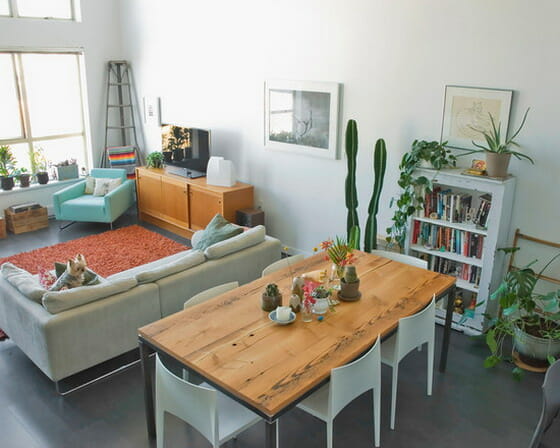 When designing a house, one of the biggest challenges is creating a functional and aesthetically pleasing space with limited square footage. This is where the concept of a shared living room and dining room comes in. By combining these two rooms into one, you can maximize your space and create a versatile area that can serve multiple purposes. In this article, we will explore some creative shared living room dining room ideas that will help you make the most out of your space.
When designing a house, one of the biggest challenges is creating a functional and aesthetically pleasing space with limited square footage. This is where the concept of a shared living room and dining room comes in. By combining these two rooms into one, you can maximize your space and create a versatile area that can serve multiple purposes. In this article, we will explore some creative shared living room dining room ideas that will help you make the most out of your space.
Creating a Cohesive Design
 The key to a successful shared living room and dining room is creating a cohesive design that ties both spaces together. This can be achieved through the use of
complementary colors, furniture placement, and decorative accents
. For example, if your living room has a neutral color scheme, you can incorporate
bold and vibrant hues
in your dining room to add a pop of color and create visual interest. Similarly, using similar furniture styles and materials in both areas will create a sense of unity and flow.
The key to a successful shared living room and dining room is creating a cohesive design that ties both spaces together. This can be achieved through the use of
complementary colors, furniture placement, and decorative accents
. For example, if your living room has a neutral color scheme, you can incorporate
bold and vibrant hues
in your dining room to add a pop of color and create visual interest. Similarly, using similar furniture styles and materials in both areas will create a sense of unity and flow.
Utilizing Multi-functional Furniture
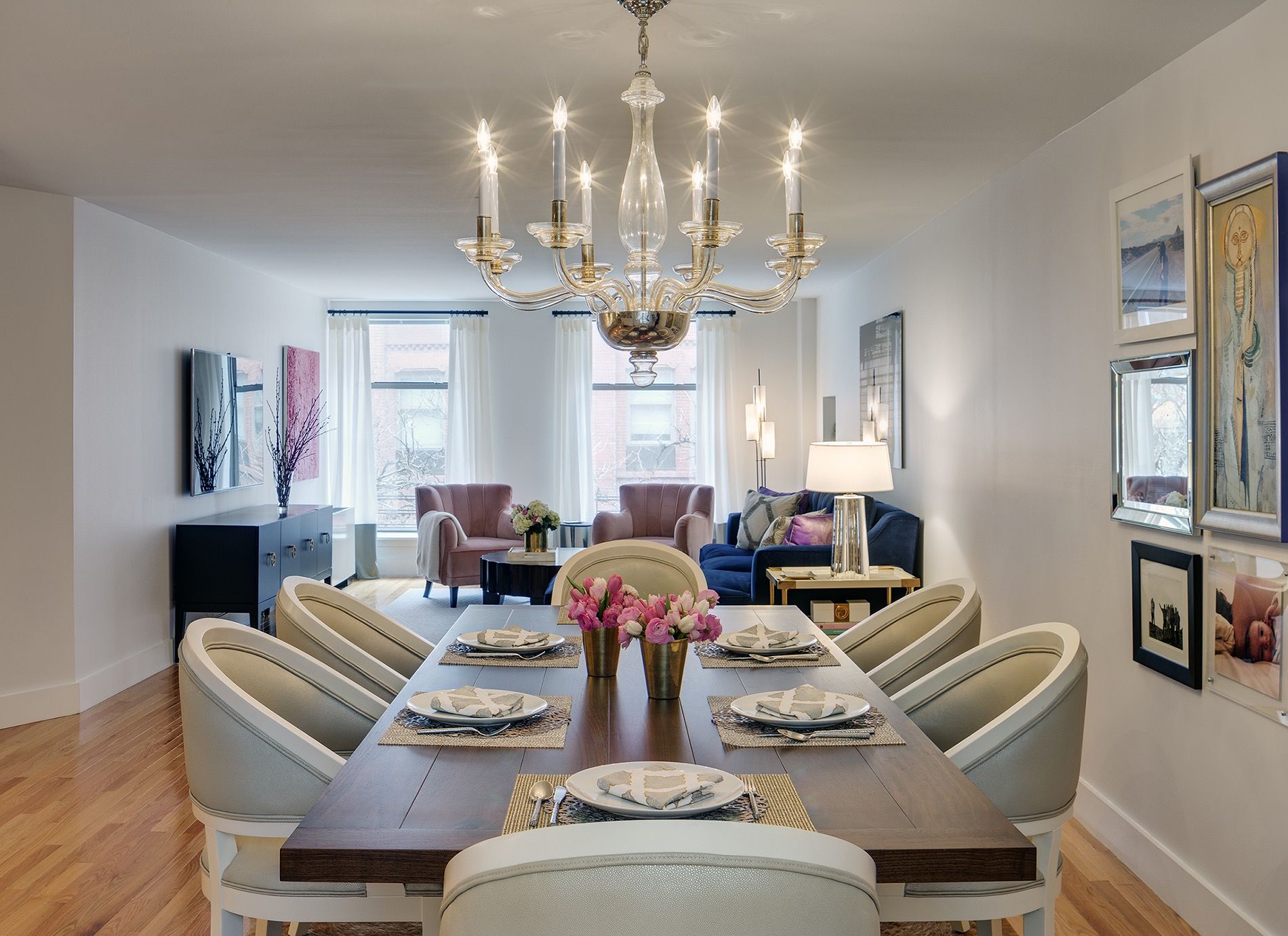 In a shared living room and dining room, space is of the essence. Therefore, it is important to choose
multi-functional furniture pieces
that serve more than one purpose. For instance, a
coffee table with storage
can double as a dining table when needed, or a
sofa bed
can provide extra seating during dinner parties. This not only saves space but also adds practicality to your design.
In a shared living room and dining room, space is of the essence. Therefore, it is important to choose
multi-functional furniture pieces
that serve more than one purpose. For instance, a
coffee table with storage
can double as a dining table when needed, or a
sofa bed
can provide extra seating during dinner parties. This not only saves space but also adds practicality to your design.
Separating the Spaces
 While a shared living room and dining room can offer a versatile and open space, it is also important to create some separation between the two areas. This can be achieved through
strategic furniture placement or the use of room dividers
. For example, a
bookshelf
can serve as a divider and also provide storage for both areas. You can also use different lighting fixtures to define each space and create a sense of individuality.
While a shared living room and dining room can offer a versatile and open space, it is also important to create some separation between the two areas. This can be achieved through
strategic furniture placement or the use of room dividers
. For example, a
bookshelf
can serve as a divider and also provide storage for both areas. You can also use different lighting fixtures to define each space and create a sense of individuality.
Adding Personal Touches
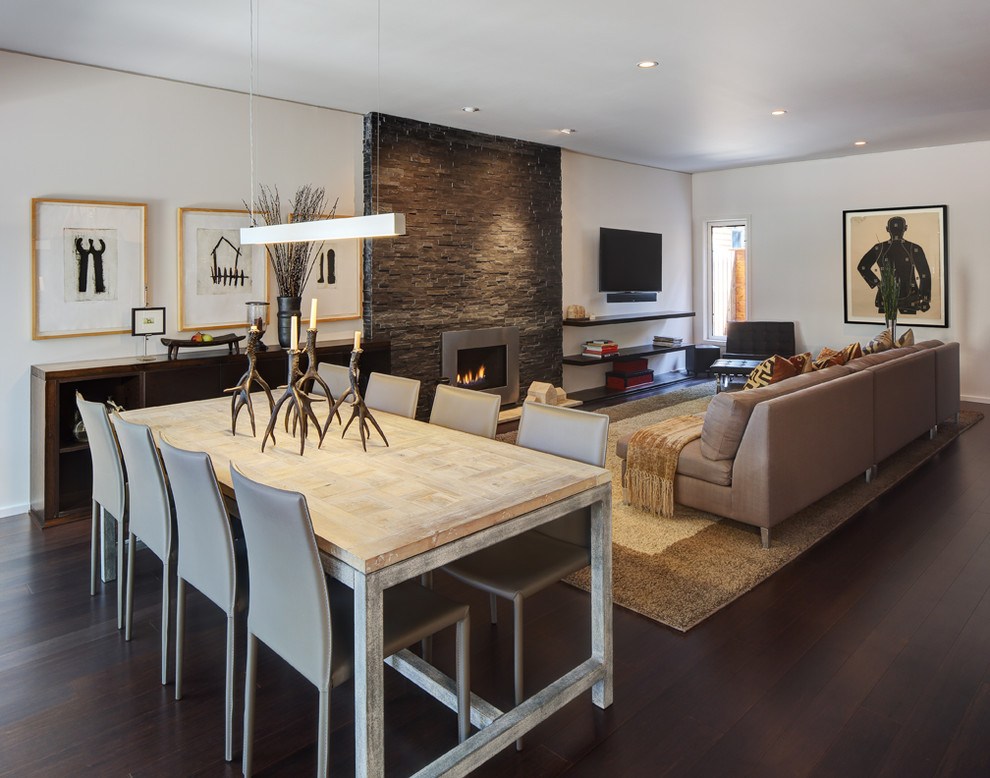 Lastly, don't forget to add some personal touches to your shared living room and dining room. This could be in the form of
artwork, decorative accents, or family photos
. These little details not only add character to the space but also make it feel more welcoming and lived-in.
In conclusion, a shared living room and dining room can be a practical and stylish solution for small spaces. By following these ideas, you can create a cohesive and functional design that meets all your needs. Remember to
utilize multi-functional furniture, incorporate complementary design elements, and add personal touches
to make your shared space truly unique.
Lastly, don't forget to add some personal touches to your shared living room and dining room. This could be in the form of
artwork, decorative accents, or family photos
. These little details not only add character to the space but also make it feel more welcoming and lived-in.
In conclusion, a shared living room and dining room can be a practical and stylish solution for small spaces. By following these ideas, you can create a cohesive and functional design that meets all your needs. Remember to
utilize multi-functional furniture, incorporate complementary design elements, and add personal touches
to make your shared space truly unique.

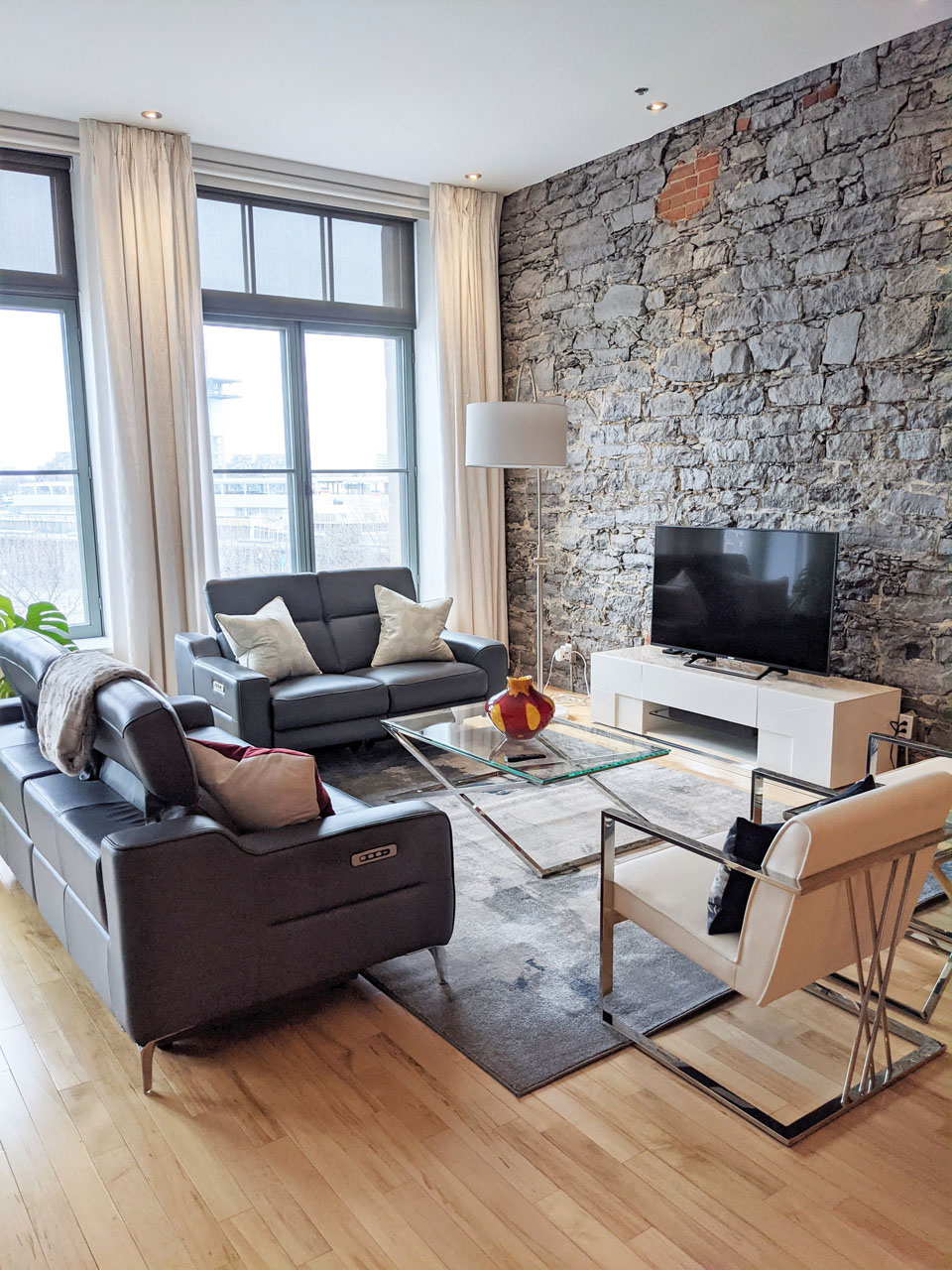


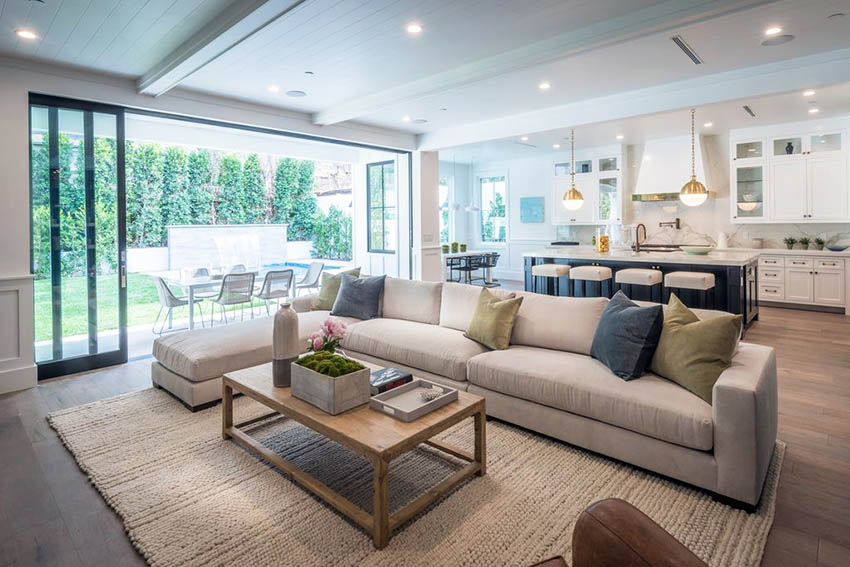









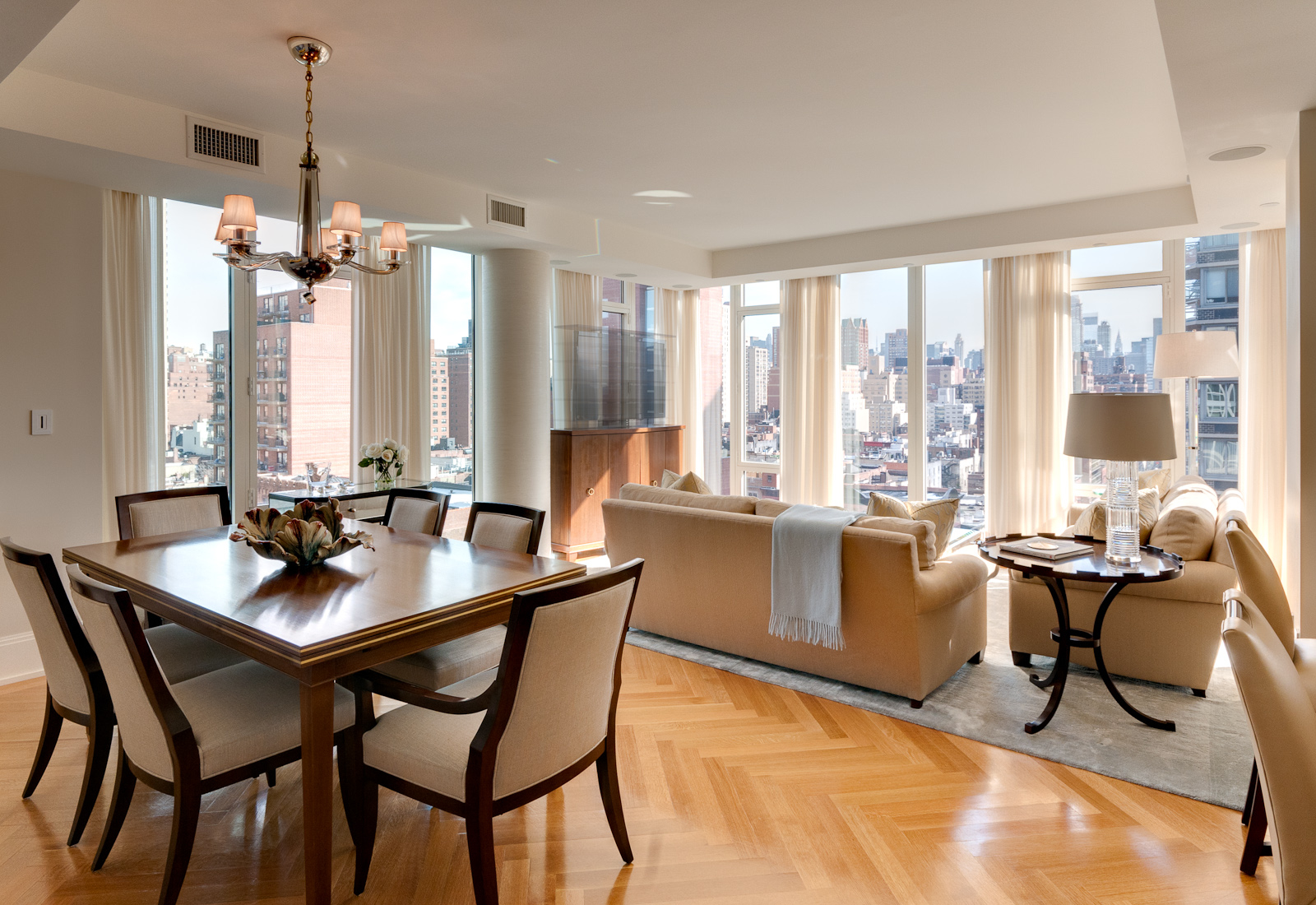


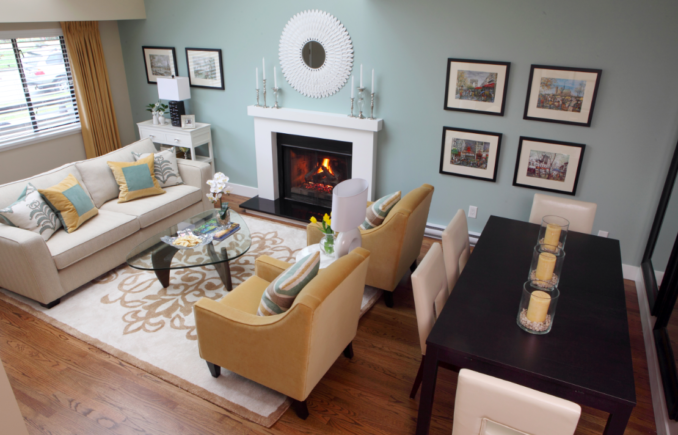

:max_bytes(150000):strip_icc()/living-dining-room-combo-4796589-hero-97c6c92c3d6f4ec8a6da13c6caa90da3.jpg)


